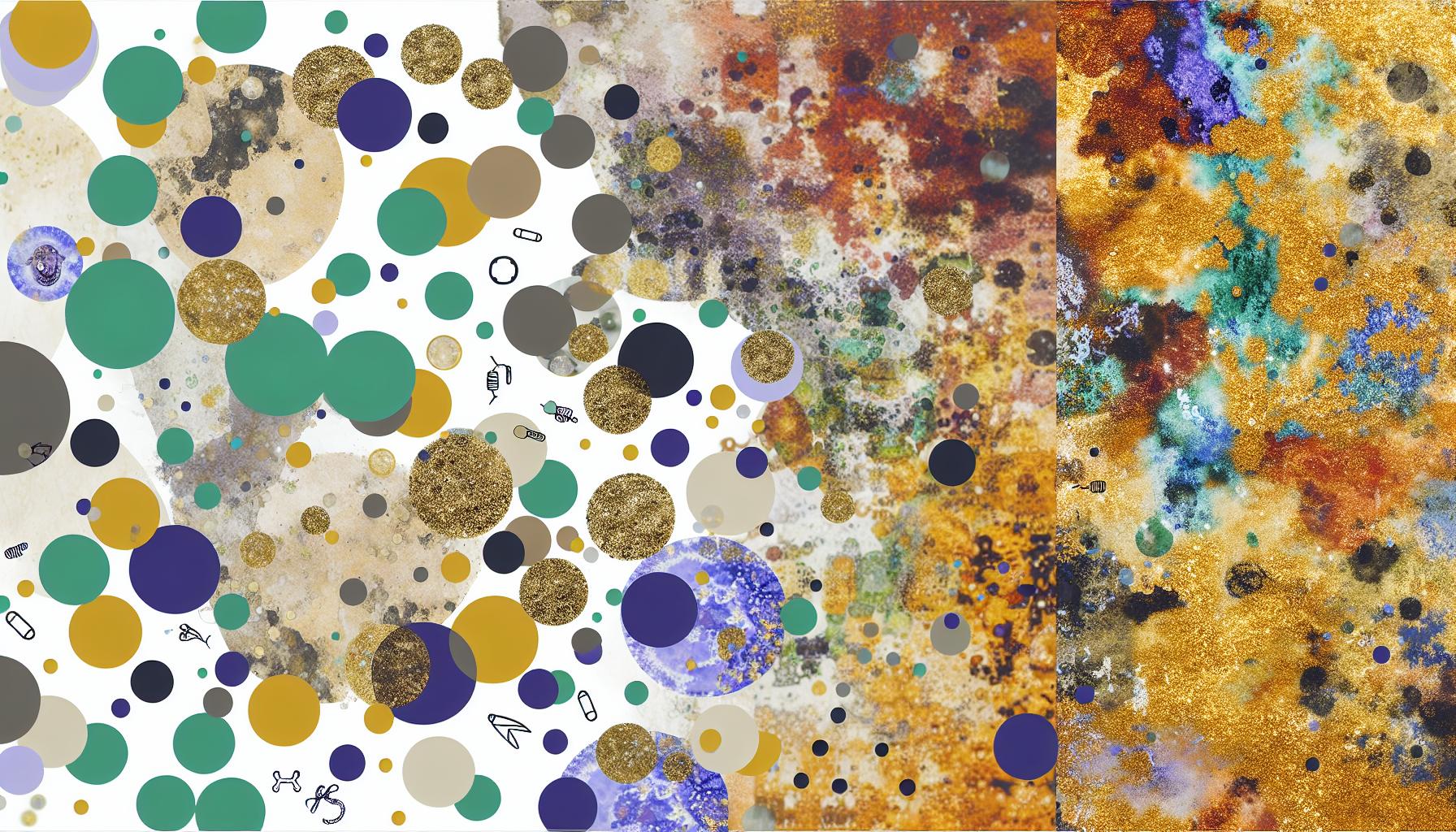As new moms navigate the challenges of breastfeeding, they may notice unwelcome strands of gray hair adding to their stress. Understanding the causes of this sudden graying can empower mothers with the knowledge to address it.This article explores why hormonal changes during lactation can lead to gray hair and offers practical solutions to help moms feel confident and rejuvenated.
Understanding the Connection Between Grey Hair and Parenting
The Reality of Grey Hair in Parenting
Becoming a parent often comes with a whirlwind of emotions and experiences, and for many, it also brings unexpected changes, including the appearance of grey hair. While grey hair is commonly associated with aging, its emergence can occur at any stage of life, particularly during the stress and sleepless nights of early parenting. This phenomenon can be surprising, especially for nursing mothers, as it may feel like a stark reminder of the challenges they face.Understanding the causes behind premature grey hair can provide insight for parents. Factors such as genetic predisposition, nutritional deficiencies, and stress play a meaningful role in the depletion of melanocytes, the cells responsible for pigment in hair strands. While becoming a parent is a joyous occasion, the accompanying stress, altered sleep patterns, and nutritional changes, especially during breastfeeding, can contribute to early greying. Stress management strategies,such as mindfulness exercises,adequate rest,and a balanced diet rich in vitamins and minerals,can be effective countermeasures.
Practical Solutions for managing Grey Hair
For moms experiencing grey hair during breastfeeding,several actionable solutions can help mitigate this change. Here are practical steps to consider:
- Focus on Nutrition: Ensure your diet includes essential vitamins such as B12, folate, and iron. Foods like leafy greens, eggs, nuts, and seeds can support overall hair health.
- Manage stress: Implement relaxation techniques such as yoga, meditation, or even simple breathing exercises to help alleviate the stress contributing to premature greying.
- Hair Care Practices: Regularly use conditioners and hair masks that nourish the hair follicles, promoting healthier hair growth.
- Consult a Professional: If grey hair becomes a concern, consider speaking to a dermatologist or a nutritionist for personalized advice.
The beauty of parenting lies in its unpredictability, and while the emergence of grey hair might seem daunting, it can also serve as a testament to the growth and resilience gained through motherhood. By , moms can embrace this change with a proactive approach, ensuring both their hair health and overall well-being during this transformative period.
Common Causes of Grey Hair During Breastfeeding
Understanding the Causes of Grey Hair During breastfeeding
As new mothers navigate the challenges of breastfeeding, they may notice unexpected changes in their hair, including premature greying. This phenomenon can be attributed to various biological and lifestyle factors. Understanding these causes is essential for managing and mitigating the effects of grey hair during this transformative period.
- Hormonal Changes: The hormonal fluctuations that occur during pregnancy and breastfeeding have a significant impact on hair health.Estrogen levels drop post-delivery, which can affect pigmentation in hair follicles, potentially leading to grey hair.
- Stress Levels: The demands of motherhood can be overwhelming, contributing to elevated stress levels. Increased stress is known to accelerate the greying process, as it may affect the body’s ability to produce melanin, the pigment responsible for hair color.
- Nutrition Deficiencies: Breastfeeding requires a balanced intake of nutrients to support both mother and baby.Insufficient levels of essential nutrients, particularly B vitamins, iron, and zinc, can impair hair health and result in grey hair.
- Genetic Factors: Genetics also play a crucial role in determining when and how quickly hair turns grey. If there is a family history of early greying, mothers may experience similar changes during breastfeeding.
Practical Steps to Address Grey Hair During Breastfeeding
Combatting grey hair while breastfeeding can often be approached with simple lifestyle adjustments.Here are some actionable steps to nourish your hair:
| Action | description |
|---|---|
| Increase Nutritional Intake | Focus on a diet rich in fruits, vegetables, lean proteins, and whole grains.Incorporate foods high in vitamins B12 and D, and minerals like iron and zinc. |
| Practice Stress Management | Engage in relaxation techniques such as yoga, meditation, or deep-breathing exercises to help minimize stress. |
| Use Nourishing Hair Products | Opt for hair care products that hydrate and strengthen hair, including deep conditioners and natural oils. |
By recognizing the and implementing targeted strategies, mothers can better maintain their hair’s health while embracing the rewarding journey of motherhood.
Nutritional Tips for Maintaining Healthy Hair While Nursing
Did you know that nutritional choices play a critical role in preventing premature greying and maintaining overall hair health during breastfeeding? As new mothers navigate the challenges of nursing,balancing nutritional intake becomes essential not onyl for their own well-being but also for the health of their hair. adequate nutrition can support the body’s natural hair growth cycle and combat changes like those seen in the ‘Grey Hair Breastfeeding: Causes and Solutions for Moms’ topic.
Essential Nutrients for Flourishing Hair
To support vibrant hair while nursing, focus on incorporating a variety of nutrients:
- Protein: Hair is primarily made up of protein, making it crucial for maintaining its strength and texture. Include sources like lean meats, eggs, dairy, legumes, and nuts in your diet.
- Omega-3 Fatty Acids: These fats nourish the hair follicles and can help reduce inflammation.Opt for fatty fish, flaxseeds, and walnuts.
- Biotin: Known for promoting hair health, biotin-rich foods such as sweet potatoes, almonds, and spinach can provide significant benefits.
- Vitamins A and C: Both are essential for producing sebum, which keeps hair moisturized. Sources include carrots, sweet potatoes, citrus fruits, and leafy greens.
- Iron: Low iron levels can lead to hair loss. Incorporate lean red meats, beans, and fortified cereals.
Hydration and Healthy Lifestyle Habits
Along with a nutrient-dense diet, staying well-hydrated is vital for keeping hair follicles healthy. Aim for at least 8-10 glasses of water a day to ensure proper hydration. Stress management practices, such as mindfulness or gentle yoga, may also help reduce hair loss related to hormonal fluctuations during breastfeeding.
Practical Dietary Additions
Here are some easy-to-make meal ideas that can help support hair health:
| Meal | Main Ingredients |
|---|---|
| Protein-Packed Breakfast Bowl | Oats, Greek yogurt, chia seeds, and berries |
| Salmon Salad | Grilled salmon, spinach, walnuts, and oranges |
| Chickpea Stir-Fry | Chickpeas, bell peppers, broccoli, and quinoa |
By making mindful dietary choices and supporting your body with the right nutrients, you can help combat the effects of greying and support your hair’s vitality during the breastfeeding journey. Remember, nourishing your body is just as important as nurturing your baby!
The Role of Stress in Hair Color Changes for New Moms
The Psychological Impact of motherhood
For many new mothers, the transition into motherhood is accompanied by profound changes—not just in responsibilities but also in physical appearance, including the onset of grey hair. interestingly, recent studies have indicated a strong correlation between psychological stress and the graying of hair. Stress experienced during this transformative life phase can exacerbate the natural aging process of hair follicles, leading to a shift in hair color that may leave many moms feeling self-conscious during an already challenging time.
How Stress Influences Hair Color
When a new mom faces heightened stress levels, whether from sleepless nights, feeding schedules, or new parenting responsibilities, the body’s physiological response can trigger changes in hair pigmentation. research has shown that psychological stress is linked to an increase in certain proteins associated with mitochondrial dysfunction within hair follicles. This disruption can lead to a slowdown in melanin production—the pigment responsible for hair color. In essence, the stress of motherhood can accelerate a process that might have taken years under typical circumstances.
- Sleep deprivation: Chronic lack of sleep can elevate cortisol levels,which has been directly related to changes in hair health and color.
- Nutritional Deficiencies: While breastfeeding, nutritional needs are heightened, and imbalances such as iron or vitamin D deficiencies can also contribute to hair changes.
- Emotional Well-being: Managing mental health through support networks or professional help can mitigate stress, potentially helping to maintain natural hair color.
Practical Steps for New Moms
To combat stress-induced hair color changes, new moms can consider implementing several actionable strategies. Engaging in regular self-care routines, such as mindfulness practices like yoga or meditation, can play a pivotal role in managing stress levels. A balanced diet rich in vitamins B12, D, and iron is essential, as these nutrients support healthy hair and pigmentation. Additionally,staying hydrated and incorporating gentle exercise can foster both physical and mental well-being,helping to stave off the graying process.
| Strategy | Benefits |
|---|---|
| Mindfulness Practices | Reduces stress; improves overall well-being |
| Nutritional focus | Promotes healthy hair growth; combats deficiencies |
| Regular Exercise | Boosts endorphins; improves mood |
By taking proactive steps to address stress and prioritize self-care, new mothers can better navigate the complexities of motherhood while also attending to the changes in their hair. Understanding the role of stress in hair color changes can empower moms to take control of their health, ensuring they feel confident and lovely during this precious period of their lives.
Natural Remedies to Manage Grey Hair Postpartum
Embrace
Many new mothers experience grey hair as a side effect of the physical and hormonal changes that occur during pregnancy and after childbirth. This phenomenon can be especially noticeable during breastfeeding,as the body continues to adjust. while it might potentially be tempting to cover up these greys with dyes, there are several natural remedies that can effectively manage and possibly slow the progression of greying hair postpartum.
- Dietary Adjustments: Incorporating foods rich in antioxidants and vitamins can significantly impact hair health. Focus on including foods high in vitamin B12, iron, and omega-3 fatty acids. Consider adding the following to your diet:
- Cow’s milk and dairy products: Rich in vitamin B12.
- Leafy greens: Such as spinach and kale, provide iron and folate.
- Fatty fish: Like salmon, which contains omega-3 fatty acids that improve overall hair health.
- Herbal Treatments: Certain herbs are known for their ability to naturally darken hair and reduce greys. Consider using:
- henna: A natural dye that gives a reddish-brown tint and conditions the hair.
- Amla (Indian Gooseberry): Known for its high vitamin C content, it can be consumed or applied as an oil to nourish hair follicles.
- Black tea: Applying cooled black tea can subtly darken hair and enhance its natural color.
- Essential Oils: Incorporating essential oils into your routine can help support hair health. Oils such as rosemary and lavender are reputed for promoting hair growth and improving scalp health. Mix a few drops with a carrier oil and massage into the scalp regularly.
Practical Tips for Implementation
Here are some actionable steps you can take to integrate these natural remedies into your daily routine:
| Activity | Frequency | Benefits |
|---|---|---|
| Incorporate green leafy vegetables in meals | Daily | Supports iron levels and promotes hair strength. |
| Apply herbal pastes like henna or amla | Every 1-2 weeks | Natural coloring and nourishment of hair. |
| Massage scalp with essential oils | 2-3 times a week | Improves blood circulation and promotes growth. |
By embracing these natural remedies,you can manage grey hair postpartum effectively while nourishing your hair from within. These methods not only enhance your hair’s appearance but also contribute to your overall well-being during the breastfeeding journey.Prioritizing nutrition and holistic care is essential for new mothers navigating the complexities of motherhood and personal health.
When to Seek Professional Help for Hair Concerns
Recognizing the Signs
Understanding , especially in the context of postpartum changes like grey hair during breastfeeding, can be crucial. Many new mothers experience a range of hair changes due to hormonal shifts, nutritional deficiencies, and stress. If you notice excessive greying, thinning, or shedding beyond the typical postpartum hair loss, it might very well be a sign of underlying issues that warrant expert evaluation.
When to Consult a Specialist
It’s essential to consult a professional when you observe the following:
- Rapid Greying: If grey hair appears suddenly and in large amounts,it may indicate a deficiency in vitamins such as B12 or genetic predisposition.
- Hair Thinning: Significant thinning or bald patches can suggest conditions like telogen effluvium or alopecia areata, both of which benefit from professional diagnosis and treatment.
- persistent Shedding: Losing more than 100 strands a day consistently should be taken seriously. Consulting a trichologist or dermatologist can definitely help identify the cause and necessary interventions.
Benefits of Professional Guidance
Seeking help from a hair specialist can provide targeted solutions tailored to breastfeeding moms. Professionals like trichologists can offer dietary recommendations, supplement advice, and treatments that support hair health during this critical time. As an example, hair-care regimens that specifically address hormonal changes postpartum can lead to healthier hair growth and a reduction in grey hair appearance. Moreover, they may also investigate any underlying health conditions that contribute to these changes, ensuring a comprehensive approach to your hair health.
By recognizing the symptoms and understanding when to seek help, nursing mothers can take proactive steps towards maintaining their hair health during a period of significant change.
Embracing Your Changing Appearance: A Positive Outlook for moms
Redefining Beauty Through Change
As motherhood unfolds, many women experience profound changes not just in their lives but also in their physical appearance. One of the most visible signs of these changes can be grey hair,particularly noted during significant life transitions such as breastfeeding. Instead of viewing grey hair as a loss of youth, embracing this change can serve as a festivity of experience, strength, and motherhood itself. The journey of breastfeeding, while incredibly rewarding, can take a toll on your body, and recognizing grey hair as part of your evolving beauty can foster a positive self-image.
Understanding the Causes
The appearance of grey hair during breastfeeding can be attributed to several factors, ranging from hormonal changes to nutritional deficiencies. It’s essential to understand that these changes are natural and reflect the unbelievable demands placed on a woman’s body during this time. Some common causes include:
- Hormonal fluctuations: Breastfeeding triggers hormonal changes that may accelerate the greying process.
- Stress levels: The demands of new motherhood can lead to increased stress, which is linked to premature greying.
- Nutritional gaps: Essential vitamins and minerals are crucial during breastfeeding; deficiencies can affect hair pigmentation.
Embrace the Experience
Rather than viewing grey hair as a challenge, consider it a badge of honor that reflects your journey through motherhood. real-life examples abound of women who have transformed their perceptions, choosing to adorn their grey hair with pride. Engaging in regular self-care practices can bolster your confidence during this transition. Here are some actionable tips:
- Stay nourished: Focus on a balanced diet rich in vitamins B12, D, and E, as well as minerals like zinc and iron.
- Practice stress relief: Incorporate mindfulness, yoga, or other relaxation techniques into your daily routine to manage stress effectively.
- Hair care rituals: Use hydrating shampoos and conditioners specifically designed for grey hair to enhance its natural beauty.
Embracing your changing appearance is about more than just aesthetics; it’s about acknowledging the beautiful complexities of your life as a mother. You are not only nurturing a new life but also redefining your own identity and beauty in the process.
Frequently Asked Questions
What causes grey hair while breastfeeding?
Grey hair during breastfeeding is primarily caused by hormonal changes and stress. As your body adjusts to motherhood, you may experience fluctuations in hormones and increased stress levels, both of which can impact hair pigmentation.
During pregnancy and breastfeeding, significant hormonal shifts can alter your hair’s natural cycle. Additionally, the demands of caring for a newborn can lead to stress, which has been linked to premature greying. For more insights on body changes during this period, check out our article on postpartum body changes.
Can I dye my hair while breastfeeding?
Yes, you can dye your hair while breastfeeding, but it is advisable to choose ammonia-free hair color products. These are less harmful and reduce potential risks to your baby.
While there is no concrete evidence linking hair dye to breastfeeding issues, opting for safer alternatives like natural dyes or highlights can provide peace of mind. always consult your healthcare provider if you have concerns about specific products.
Why does stress lead to grey hair during breastfeeding?
Stress can accelerate the greying of hair by affecting the melanocytes, which produce the pigment in your hair. High stress levels may disrupt the natural hair cycle, contributing to premature greying.
During breastfeeding, new moms often face various stress factors, from sleep deprivation to childcare responsibilities.To manage stress, consider techniques like mindfulness or light exercise, which can also promote overall well-being.
What are natural solutions for grey hair while breastfeeding?
Natural solutions for addressing grey hair while breastfeeding include maintaining a balanced diet rich in vitamins and antioxidants. Foods high in B vitamins and iron can support hair health.
Additionally, some evidence suggests that certain oils, like coconut or almond oil, may help promote healthier hair growth. Regular scalp massages can also enhance circulation and potentially delay greying. Remember, self-care is essential during this busy stage of life!
How long does postpartum hair shedding last?
Postpartum hair shedding typically lasts about 6 to 12 months. During this time, many women notice increased hair fall due to hormonal changes and stress from caring for a newborn.
After the first year, most women will experience a noticeable advancement as their hair begins to return to its normal growth cycle. If concerns persist, it may be helpful to consult a dermatologist or healthcare provider.
What vitamins help prevent grey hair while breastfeeding?
vitamins B, C, and E, along with minerals such as zinc and iron, can support hair health and may help in reducing the onset of grey hair.A well-rounded diet can supply these nutrients effectively.
Incorporate foods like leafy greens, nuts, and whole grains into your meals. Before taking supplements, always discuss with your healthcare provider to ensure they align with your breastfeeding needs.
Is it safe to use hair products while breastfeeding?
Generally, it is indeed safe to use hair products while breastfeeding.most hair-care treatments are regulated as cosmetics and do not have adverse effects on breastfeeding infants.
However, choosing products that are free from harmful chemicals, such as parabens and phthalates, is advisable to minimize any absorption into the bloodstream. For additional tips on safe beauty routines during breastfeeding, consider reading our article on safe beauty products for moms.
The Way Forward
Navigating the journey of motherhood comes with its unique set of challenges, and dealing with grey hair during breastfeeding is one that many moms face. Understanding the causes, such as hormonal changes and stress, can empower you to address this concern effectively. Alongside maintaining a nourishing hair care routine, considering temporary hair dyes and other safe treatments can provide you with the confidence to manage your hair without any worry for your baby’s well-being.
remember, you are not alone in this experience, and there are practical solutions available to help you feel your best. We encourage you to explore further and share your personal tips and stories in our community.Your journey is important, and together we can navigate these transitional phases of motherhood with grace and support.






